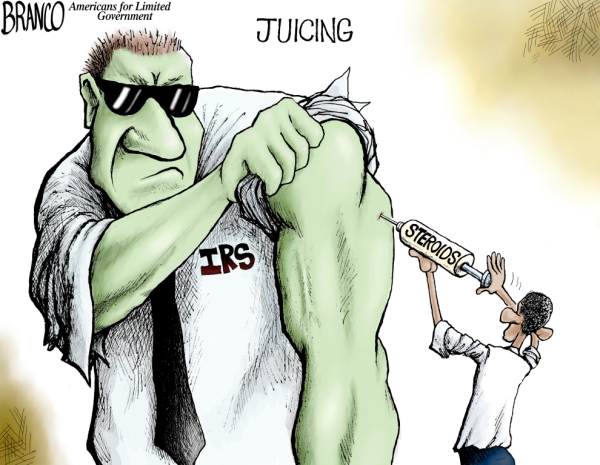By hook or by crook, the Obama administration is likely going to get its way on Internal Revenue Service (IRS) targeting of the tea party and other 501(c)(4) organizations, and those groups will have no other recourse than to challenge the ensuing censorship in federal court.
By the time the scandal was revealed last year — wherein it was discovered the applications of groups were being held up because they had names like “tea party” or “9-12” — the agency was already well under way to formalizing its approach to stifling the political speech of outside groups in the form of a new regulation that was finally revealed last November.
The new rule will dramatically alter what sorts of speech are and are not allowed 60 days prior to the general election and 30 days prior to primary elections at the federal, state, and local level.
Under existing rules, an organization may carry on electioneering activities so long as it does not constitute a majority of its activities. But under the new rule, any communication that even mentions a public official who happens to be a candidate will be not allowed during the blackout windows.
Specifically, the regulations will define “certain communications that are close in time to an election and that refer to a clearly identified candidate as electioneering communications.” This will not only bar (c)(4)s from expressly advocating the election or defeat of candidates, it will also squelch any speech that even reports on an elected official’s voting record. So, no more voter guides.
That is, if groups want to keep their 501(c)(4) tax status, and not be reclassified as section 527 political action committees. Both are tax-exempt entities, but with one critical difference: 527s have to disclose members to the Federal Election Commission, and 501(c)(4)s do not.
Disclosure of membership lists — in order to deter speech — remains the focus and true intent behind these regulations. It is to achieve via regulation what Congress could not when the DISCLOSE Act was defeated in 2010, and what McCain-Feingold could not when the Supreme Court struck it down in Citizens United in 2010.
That is why new proposed legislation in the House of Representatives by Chairman of the House Ways and Means Committee Rep. Dave Camp (R-Mich.) is of little comfort to those being targeted by the IRS. It would merely delay the new rule until after the 2014 elections, rather than prohibit the agency from issuing it.
Well, what about the 2016 elections? Or every election after that?
Chairman Camp is to be praised for taking this issue on, and for his many hearings into the IRS targeting, but as far as an effective response goes — is a delay the best the House of Representatives can offer?
To offer legislation that admittedly has zero chance of passing the Senate that does not even outlaw the very targeting that it seeks to delay?
Even if it did pass, a delay might even postpone court challenges to the new rule once it is issued, having the potential tie up (c)(4)s if not in 2014, certainly through the 2016 cycle while courts work their way through it.
The House might as well pass the bill it wants and just outlaw the practice altogether and be done with it. If the legislation stands no chance anyway, at least tell constituents that the regulation is abominable and ought to be barred.
Sadly, there may be nothing the House can do legislatively to stop the rule. By enacting a two-year budget and kicking the debt ceiling can down the hill until March 15, 2015, Republicans have ceded all of their leverage via the power of the purse. There are no more must-pass pieces of legislation this year.
So, unless the tens of thousands of negative comments being issued against the regulation have a miraculous effect and the new rule is gutted by the very agency that issued it, it’s a done deal.
In the meantime, Chairman Camp would do well to keep constant pressure on the IRS to rescind the rule and to stop the targeting, knowing that this issue will be the seminal fight in the next government funding battle in 2015.
When that time comes, House and Senate Republican leaders will need to be prepared to do whatever is necessary to preserve free speech — or there might not be anyone around able to provide any support when they decide they really do want to take a stand on Obamacare, the EPA, or some other issue.
Robert Romano is the senior editor of Americans for Limited Government.







